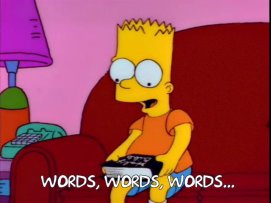Fundamentalist America has long had a somewhat uncertain relationship with mass media. On one hand, lots of prominent conservatives make their mark by bashing the biases they see in what they call the “liberal media.” For a recent example, check out William Kristol’s challenge to the New York Times regarding its treatment of Andrew Breitbart. On the other hand, conservatives such as Rush Limbaugh, Glenn Beck, and the late Andrew Breitbart himself have relied on their mastery of mass media in order to win whatever influence they may have.
Conservative religious folks usually complain the loudest about media bias. Two years ago, for instance, a comment by Fox News’ Brit Hume that golfer Tiger Woods ought to embrace Christianity evoked a teapot tempest of discussions about the anti-Christian bias in most media outlets.
Thanks to Walter Russell Mead at Via Meadia, we come across a new study by scholars at the University of Southern California and the University of Akron. This survey suggests that there may be more to conservative religious folks’ complaints than just Fox News sensationalism. This study surveyed 2000 media consumers and 800 producers. Some of the findings seem to confirm an anti-religious bias among most journalists. More precisely, they seem to confirm a NON-religious bias. Among the reporters, only 20% described themselves as “very knowledgeable” about religion. Also, the category of white evangelical Protestants was notably underrepresented among the reporters surveyed. Reporters tended to feel that the most important part of religion was its impact on politics (48.1%), while fewer media consumers (37.0%) saw that as the most important religious topic. Also, the general public tended to think there was far too much sensationalism in religious coverage (66.5%), as opposed to reporters (29.8%).
The survey broke down media producers into categories including “Focused,” “Frequent,” “Infrequent,” and “Non-producers” of religion coverage. In terms of religious identity, only a small minority of the reporters surveyed (5.1%) called themselves white evangelical Protestants, compared to 20.8% white Catholic, 34.9% white mainline Protestant, and 12.8% unaffiliated. This doesn’t match the percentage of the general population. According to the Pew Forum on Religion and Public Life, evangelicals make up just over a quarter of the US population. If we look a little closer, even among the self-identified white evangelical Protestant reporters, there is a distinct skew toward religious coverage. White evangelicals made up just over 16% of the “focused” religion reporters, and only 2.1% of the “non-producers.”
What does it all mean? First of all, as with any such survey, the results mustn’t be overdone. The fact that a minority of journalists who took part in this survey called themselves “very knowledgeable” about religion doesn’t mean that they are biased against religion, much less against a certain type of religion. But the fact that white evangelical Protestants are notably underrepresented among this sample suggests that there is a trend among reporters away from evangelical Protestantism. Especially when the responses are broken out into more detail. Even among the small minority of evangelical reporters, the percentage of such reporters who are not specifically focused on religious issues shrinks to near-nothingness. One way to look at this might be to think that evangelicals—when they become journalists at all—tend to restrict themselves to specifically religious issues. Just as with other minority groups, evangelical reporters might find themselves pigeonholed into just one aspect of their public identity. In this case, evangelical reporters might be considered to be legitimate only for reporting on religious issues, not for sports, education, politics, or foreign affairs.
Does it mean that the “mainstream media” are unfair to Fundamentalist America? From this limited evidence, of course, it’s impossible to say for sure. However, this survey does suggest that reporters tend to look different from the rest of America. They tend to be less knowledgeable about religious traditions than the rest of America. They tend to be less interested in spirituality than the rest of America. And they tend to be less often from a white evangelical Protestant background than the rest of America.
As with any sort of bias, it is much easier to be inadvertently biased about groups different from ourselves. It is even easier to be biased when we know very little about such groups.
Fundamentalist America complains that most reporters don’t “get” them. This study seems to support that complaint.







